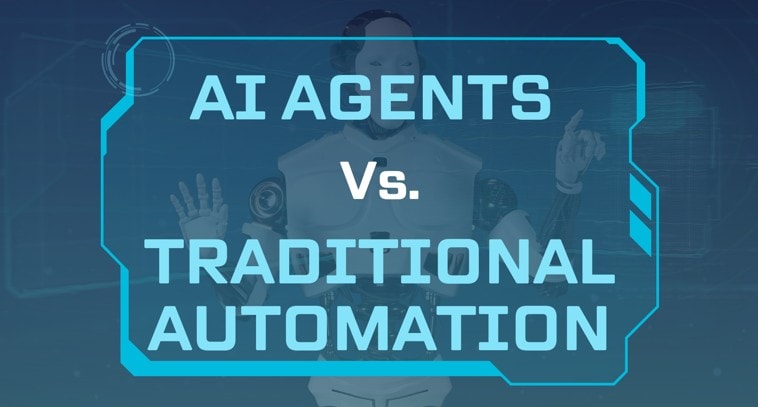Organic search engine optimization and paid search, often referred to as pay-per-click (PPC), both come with significant technical intricacies and strategic complexities.
However, the challenge is compounded by the problem of keyword cannibalization, which can be easily overlooked when SEO and PPC efforts are kept isolated within separate teams or are not seamlessly integrated to a degree that enables you to comprehend, control, and mitigate this issue.
It happens when there is conflict or some form of interference in your content, strategy, ads, or even how the search engines understand these elements.
The presence of such a conflict can create unintended and definitely unhelpful onsets that may range from competitiveness within your own brand for space in the SERP to having a rank of your content which is not the best to serve the user’s purpose.
This issue can arise in both organic and paid search, as well as between SEO and PPC efforts. This article primarily concentrates on the latter, comparing SEO and PPC.

Preventing keyword cannibalization between SEO and paid search campaigns is essential to ensure that cross-channel endeavours work harmoniously, thereby optimizing your online visibility and making the most of your marketing budget.
In this context, keyword cannibalization can manifest when paid and organic listings vie for the same keywords, frequently resulting in the expense of paying for clicks on advertisements that you might otherwise obtain organically.
You may also like: Quick SEO Wins to Start Your Growth in 2025
How to Determine If You are Experiencing Keyword Cannibalization
Detecting potential keyword cannibalization across channels can be a straightforward procedure.
First, you want to determine which keywords that you actively bid for in your paid search campaign. To do this, you access your Search Terms Report in your Google Ads account.
This report helps because it will help you understand your organic keyword rankings on your website-what average positions appear and on what pages those keywords appear in various searches.
Once you’ve pinpointed these keywords, compare them with your organic keyword rankings. Various tools and metrics can assist in this process:
- Tools: Utilize resources such as Google Ads, Google Analytics, Google Search Console, Semrush (a keyword research tool), and Screaming Frog (a website crawler) to aid in the identification of keyword cannibalization.
- Metrics: Pay close attention to metrics like impressions, clicks, click-through rates, and conversions, as they can serve as initial indicators of issues spanning your paid and organic search campaigns.
Indications of Keyword Cannibalization
As previously noted, several metrics are commonly employed as early indicators for recognizing potential keyword cannibalization. If you observe that:
Organic CTR Is Decreasing
A decrease in the organic click-through rate (CTR) may raise concerns. This decline in organic CTR can be attributed to multiple pages ranking for the same keyword.
When users encounter similar choices in their search results, attempting to differentiate between these pages can result in confusion.
You may also like: Effective PPC and Paid Search Best Practices
Clicks Are Increasing
It might not be your first instinct to consider an uptick in clicks across both your paid and organic search campaigns as a reason for concern.
However, this, too, can serve as an initial indication of keyword cannibalization. This then becomes a problem if the increment in clicks occurs on several pages all targeting the same keyword.
Individual page performance could be lowered by this, which often results in your general website traffic going down.
Ad Conversions Are Going Up But Overall Conversions Are Not Changing
Before you start doing celebratory cheers over increased PPC conversions, ensure that you are not paying for what you once got naturally.
One simple way to discern if you’re essentially purchasing conversions from your own efforts is to compare the overall number of conversions. If this total isn’t increasing in tandem with your paid conversions, and you observe a notable drop in organic conversions, it’s a clear indicator.
Regularly monitoring these metrics can assist in identifying any unusual discrepancies in your campaigns and endeavours and serve as an early warning system for potential keyword cannibalization.
Once you’ve successfully identified and resolved existing keyword cannibalization, you can take proactive measures to prevent it in your future paid and organic search campaigns and efforts.
You may also like: How To Create a Successful Strategy for Instagram and Facebook in 2025
How to Avoid Keyword Cannibalization in PPC Campaigns
Develop Unified Strategies
- Formulate cohesive strategies for SEO and PPC that align with each other’s objectives and priorities.
- In cases where separate teams or external agencies oversee your SEO and PPC initiatives, foster open communication and collaboration in developing and executing keyword strategies.
- Emphasize the significance of preventing keyword cannibalization and the associated repercussions to your teams.
- Promote the exchange of insights and data between teams to optimize the synchronization of their efforts.
Keyword Research And Segmentation
- Perform comprehensive keyword research to pinpoint valuable keywords suitable for both SEO and PPC campaigns.
- Allocate particular keywords and keyword clusters to each strategy to prevent redundancy and conflicts.
- Categorize your keyword inventory into well-defined groups or categories, guided by factors such as user intent, relevance, and competitive landscape.
- Contemplate incorporating long-tail keywords into your SEO endeavours, as these are more precise and less prone to clash with the broader, high-competition keywords commonly used in PPC.
Implement Negative Keywords into Your PPC Campaign
- Inside your PPC campaigns, include negative keywords that will exclude select keywords or phrases that may relate to your SEO.
- Negative keywords defend your ads from displaying when a targeted search is executed by an individual and ultimately decrease cannibalization.
Monitor and Adjust
- Consistently keep track of the performance of both your SEO and PPC campaigns.
- Utilize analytics tools to find those keywords driving traffic and conversions in both channels.
- Course correct based on data or performance of the traffic or keyword targeting.
- Periodically run analyses that identify and fix instances of keyword cannibalization.
- Course correct accordingly.
You may also like: The Importance of Keywords in Paid Search
Conclusion
It often lurks beneath the surface of keyword cannibalization, especially when there’s a general lack of coordination or coherence in search strategies from paid to organic. And even if you do have a solid integrated approach, there’s going to be times when cannibalization insidiously eats away at performance in very hidden, obscure ways.
It is typically easier to find keyword cannibalization on one channel than it is to find, notice, and understand its impact on both paid and organic channels altogether.
I recommend digging into this for your SEO and PPC campaigns and efforts to ensure that you are realizing the performance and results that you expect.










